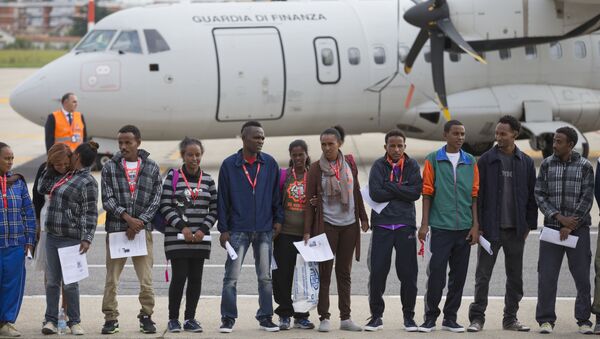Sweden has agreed to take 821 refugees form Italy and 548 from Greece as part of the European Commission's (EC) plan to relocate 40,000 refugees from the two countries, which receive the highest number of people, fleeing conflict zones in the Middle East.
IOM: Med infograpics with latest figures: 580,238 arrivals with 441,527 in Greece and 2,989 deaths: http://t.co/cysrEp9Gch
— Statewatch (@StatewatchEU) October 9, 2015
It has taken almost a year of discussions, mass drownings, dramatic rescue operations and funerals to reach a solution to the refugee crisis facing Europe.
Footage of desperate, perished and exhausted men, women and children wading to shore were coupled with images of riot police firing tear gas at refugees and asylum seekers, who were being forcibly held back from crossing country borders.
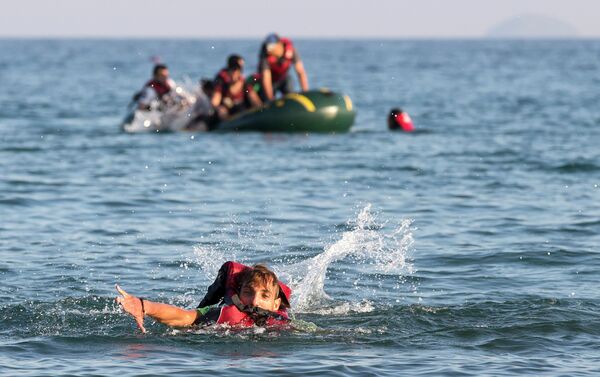
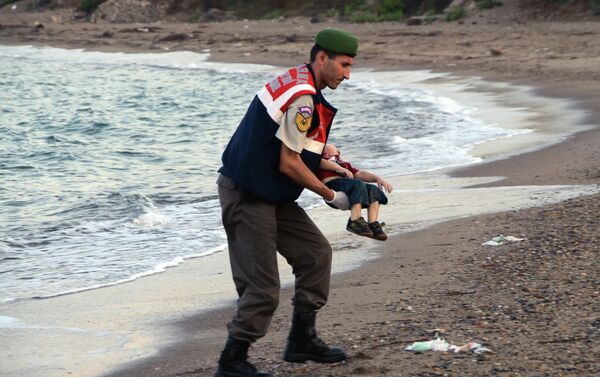
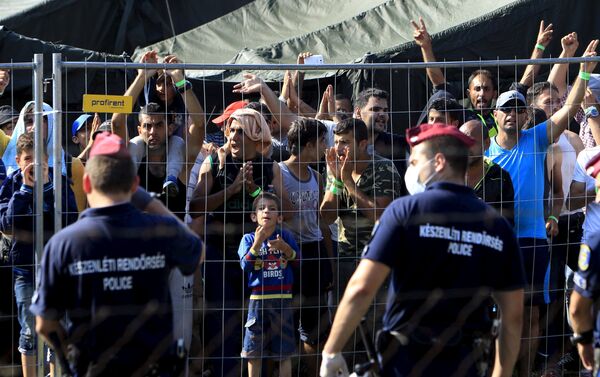
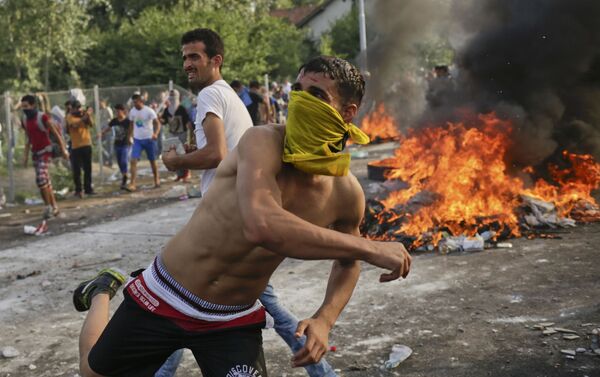
A Europe Divided, Not United
The rejection by some Eastern European member states to sign up to the EC's program has led to countries attempting to isolate themselves from the notion of an 'ever closer union', exposing significant cracks within the EU.
#refugeecrisis |@Avramopoulos on the 1st relocation flight from Italy to Sweeden."Expression of European solidarity" http://t.co/sgTXVDosGY
— European Commission (@EU_Commission) October 9, 2015
Hungary has practically sealed off every one of it's borders with razor wire fencing and introduced new laws criminalizing migrants who manage to break through.
But keen to make a public show of solidarity between EU member states, migration and home affairs commissioner, Dimitris Avramopoulos, gave an emotional statement during a press conference Friday, to celebrate the relocation of just 19 Eritrean refugees to Sweden.
"In a spirit of solidarity and responsibility, we add one more of efficiency."
"It's not the number that counts, it's not the fact that only 19 people were on board, but it is the act that counts," Avramopoulos said.
"It is symbolic of a Europe that takes responsibility, that shows solidarity and is capable of meeting the challenges before it."
Avramopoulos called on all member states to work with the Italian and Greek authorities to relocate several hundred people per month and appealed:
"…in the name of Europe, in the name of our President Jean-Claude Juncker and all of us: let's move ahead, let's address this issue, let's give hope to these people."
"But also: let's put rules, let's fight smuggling, let's start the project of returning all those who are irregularly in Europe, and provide our support and help to those who are in need of our protection."
Italy is also carrying out two return operations, where 28 Tunisians will be returned from Rome back to Tunisia, and 35 Egyptians will be returned from Catania to Egypt.
First relocation in #Italy is symbolic of a Europe that takes responsibility&shows solidarity http://t.co/yCGwskN1dD pic.twitter.com/khg0deoyIg
— DimitrisAvramopoulos (@Avramopoulos) October 9, 2015
The EU has been forced to override a rejection by some countries refusing to take part in the relocation system. As anti-immigration tensions rise and some EU member states seek to isolate themselves from the crisis whilst building walls — the relocation of 19 people on the first day of the program might not be enough to convince the whole of the European Union that they are in this together, "in the spirit of solidarity and responsibility" as suggested by Avramopoulos.
The roll-out of the resettling program of 160,000 refugees will surely test just how solid the EU is.

